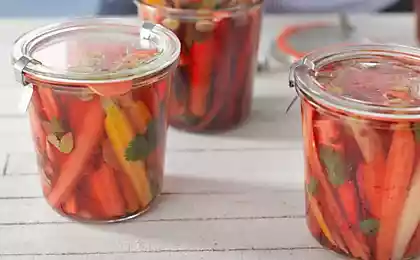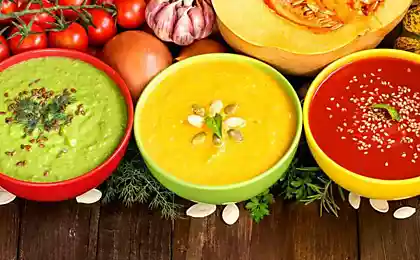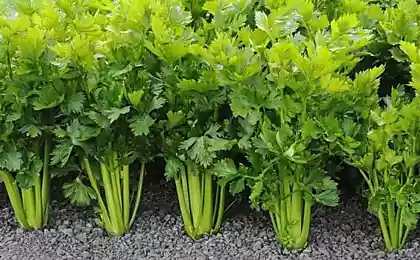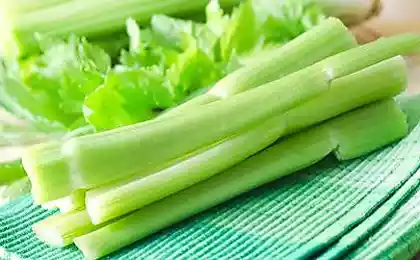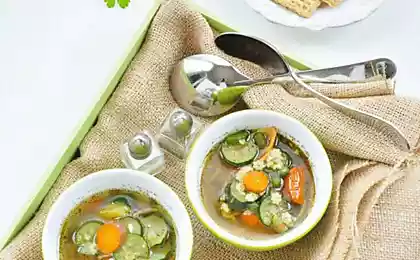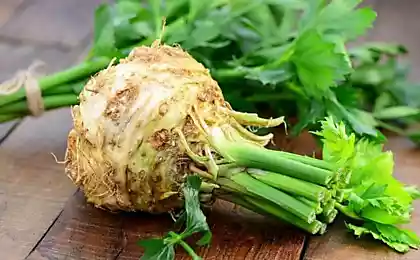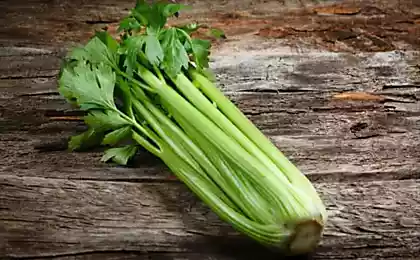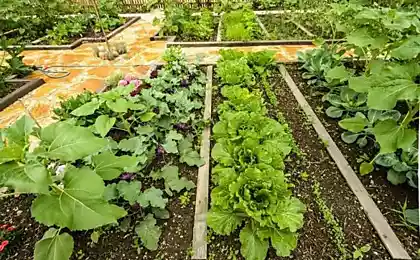570
Vegetables, which can spend the winter in the garden
Autumn is very important time to harvest. But it would be great to leave the vegetables in the garden and collect as necessary until the frost and then spring!
It turns out that there are cultures that absolutely do not have to collect and send for wintering in the cellar.
Some perennial and biennial plants able to spend the winter directly in the ground. They can collect and eat through the autumn and then in spring, after the snow melts. What can we say about perennials.
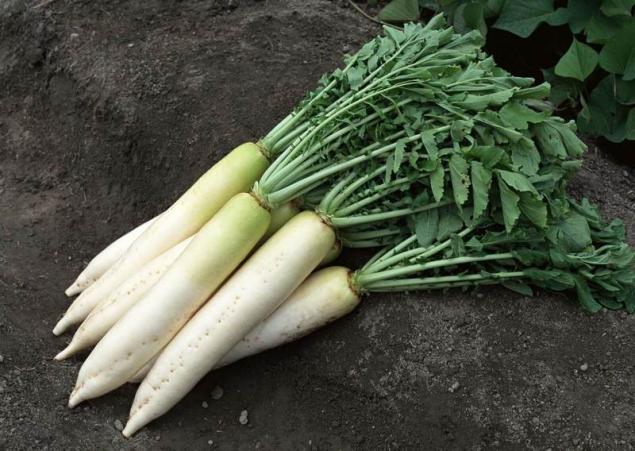
Hardy root vegetables
Spending in the garden, roots are not deprived of nutrients that they contain. In addition, plants are undemanding in cultivation and rarely affected by diseases or damaged by pests.
The Jerusalem artichoke has so many useful properties that their list can be endless. Artichoke, also known as this plant is a real mix of vitamins, carbohydrates, proteins, organic acids and many other nutrients.
Dug in the autumn the tubers in the cellar is bad: covered with spots, can mold. But they are perfectly overwinter directly in the soil, because the plant is fairly cold-resistant. Jerusalem artichokes can spend the winter without shelter, but with little snow in winter the beds it is recommended to cover with straw (5 cm layer), from above to lay spruce branches.
Note. Some vegetable crops are not only useful but also decorative. For example, the Jerusalem artichoke is its high greens may close any unsightly construction on your site, and its yellow flowers adorn the vegetable beds.
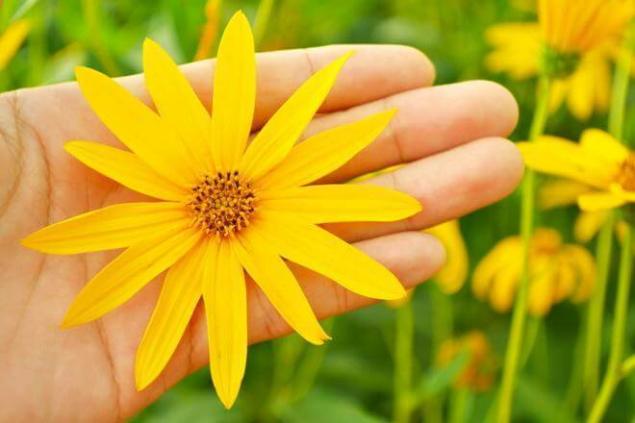
Artichoke blossoms surprisingly beautiful
Not removed in the fall carrots will safely survive the winter frosts, if it is well cover. The culture can be kept in the open bed until November, after which you need to properly prepare it for winter. First, you need to cut off the tops and cover the planting with fir paws. On top of spruce branches should be placed a layer of litter and straw with a thickness up to 15 cm. on Top of this warm bed you need to hide the film. In the cold winter on carrots, it is recommended to throw more snow, so that the roots do not freeze.
Note. The quality of the overwintered carrots significantly reduced in the spring. The roots grow shallow roots and a little Assosiate. Therefore, for fresh consumption this carrot is not necessary, it is more suitable for processing.
Not less cold-resistant is and salsify. But this plant should also be covered. For this fit the straw, which must be put on the bed a layer of about 5 cm If the spring roots are not digging immediately, the plants will bloom and produce seeds.
Without shelter pretty good winters parsnip. But at least a little to help the plant, it is to hill soil layer with a thickness of 4-5 cm In the garden should be a small mound. By the way, among all vegetable crops, the plant is one of the highest content of carbohydrate.
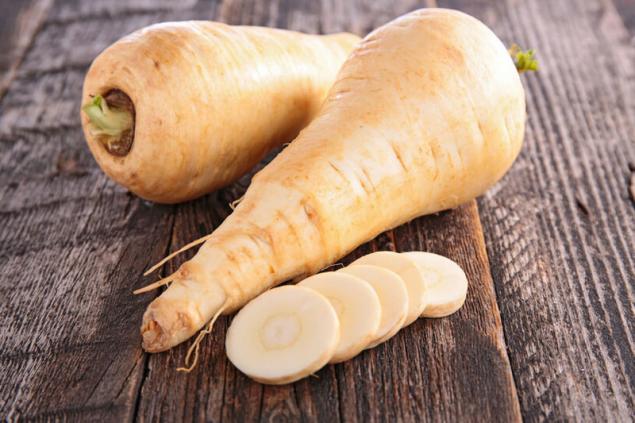
Parsnip root contains calcium, potassium, phosphorus, iron, sodium and folic acid
Well overwinter in the soil daikon and turnips. But to preserve them until spring in one piece, you will have to make the beds skirting boards. They should be sunk into the ground at 10-15 cm from each side of the plot with root vegetables. Before the onset of cold greens with daikon and turnips need to be cut, and a bed to sleep the river sand layer of 5-10 cm.
Our reference. Root vegetables – a real treat for rodents. Especially in winter, when finding food becomes more difficult. And landing are covered with spruce branches, generally they can be home for the whole cold period.
Greens
Leave hibernate in the soil can not only root vegetables, but also herbs, e.g. parsley, celeriac or Swiss chard. In the spring, just weeks after the snow melts, they will give the first crop. How useful early greens, I think, is not worth telling.
The bed of parsley for the winter enough to till the ground or to mulch with humus (compost) with a layer of 5-10 cm, However, to maintain until the summer planting parsley is not necessary, as the plants of the second year to increase powerful stalks, and green mass of petty and coarse.
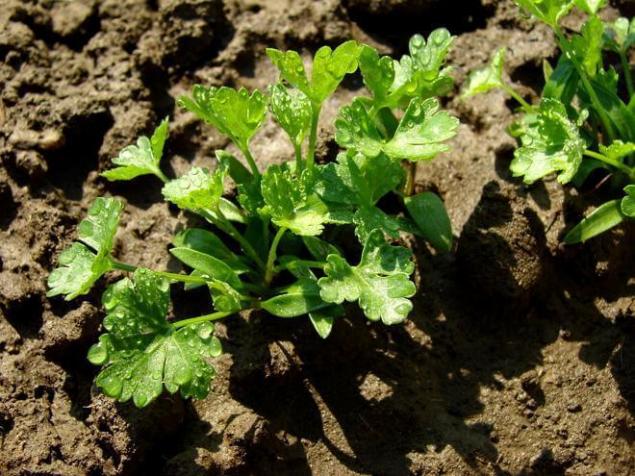
Parsley the second season practically ceases during the winter its beneficial properties
Tolerates the winter in the soil and celery. Before wintering you want to crop (cut off the tops) and mound soil. From above it is desirable to cover the bed of fir twigs.
Note. Spruce branches delays the snow in the garden and thus protects the plants from freezing. However, in the spring it is very important to remove this shelter, the plants do not have vybrali.
Chard – another cold-hardy herbs that safely overwinter in the soil, if it is to cover with a layer of peat or sawdust (3-5 cm). If in the household there was not one nor the other, like a conventional dry leaves.
Perennial vegetables
In the autumn harvest do not need perennial vegetables that tolerate winter cold. These include sorrel, horseradish, rhubarb, lovage, and rhizomatous Luke (batun, slizun, chives).
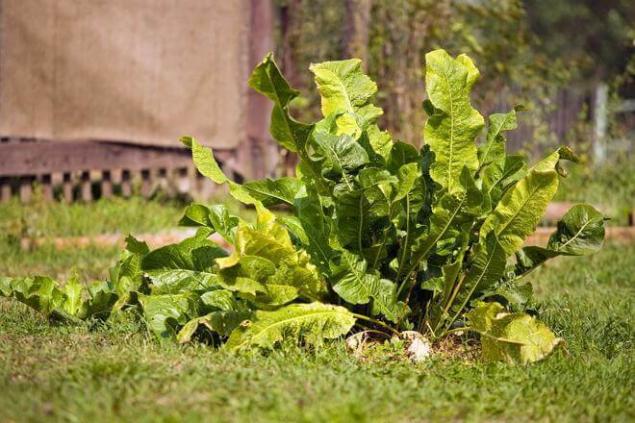
Horseradish can grow on a plot for up to 5 years
Do not forget about herbsthat can grow in the garden up to 5 years in a row. Safely overwinter under the shelter of the mulch (and in the southern region and without it), mint, lemon balm, marjoram, Catnip andtarragon.
In the first year the harvest of these crops not harvested, giving them the opportunity to get stronger. Cleaning start next spring when the new foliage grows. Such perennial planting to allow the vitamin greens in early spring. And this process even can be accelerated by covering the beds with plastic film.
Also interesting: the Garden, which is caring for myself
High-yielding beds in the Kurdyumov: a minimum of labor and a maximum of natural forces
Culture, overwintering in the soil, significantly facilitate the lives of gardeners. If you grow any of these vegetables know that it is not necessary to store their harvest in the cellar.published
Source: www.ogorod.ru/ru/ogorod/other/9598/Kakie-ovoshhi-mogut-zimovat'-na-grjadke.htm
It turns out that there are cultures that absolutely do not have to collect and send for wintering in the cellar.
Some perennial and biennial plants able to spend the winter directly in the ground. They can collect and eat through the autumn and then in spring, after the snow melts. What can we say about perennials.

Hardy root vegetables
Spending in the garden, roots are not deprived of nutrients that they contain. In addition, plants are undemanding in cultivation and rarely affected by diseases or damaged by pests.
The Jerusalem artichoke has so many useful properties that their list can be endless. Artichoke, also known as this plant is a real mix of vitamins, carbohydrates, proteins, organic acids and many other nutrients.
Dug in the autumn the tubers in the cellar is bad: covered with spots, can mold. But they are perfectly overwinter directly in the soil, because the plant is fairly cold-resistant. Jerusalem artichokes can spend the winter without shelter, but with little snow in winter the beds it is recommended to cover with straw (5 cm layer), from above to lay spruce branches.
Note. Some vegetable crops are not only useful but also decorative. For example, the Jerusalem artichoke is its high greens may close any unsightly construction on your site, and its yellow flowers adorn the vegetable beds.

Artichoke blossoms surprisingly beautiful
Not removed in the fall carrots will safely survive the winter frosts, if it is well cover. The culture can be kept in the open bed until November, after which you need to properly prepare it for winter. First, you need to cut off the tops and cover the planting with fir paws. On top of spruce branches should be placed a layer of litter and straw with a thickness up to 15 cm. on Top of this warm bed you need to hide the film. In the cold winter on carrots, it is recommended to throw more snow, so that the roots do not freeze.
Note. The quality of the overwintered carrots significantly reduced in the spring. The roots grow shallow roots and a little Assosiate. Therefore, for fresh consumption this carrot is not necessary, it is more suitable for processing.
Not less cold-resistant is and salsify. But this plant should also be covered. For this fit the straw, which must be put on the bed a layer of about 5 cm If the spring roots are not digging immediately, the plants will bloom and produce seeds.
Without shelter pretty good winters parsnip. But at least a little to help the plant, it is to hill soil layer with a thickness of 4-5 cm In the garden should be a small mound. By the way, among all vegetable crops, the plant is one of the highest content of carbohydrate.

Parsnip root contains calcium, potassium, phosphorus, iron, sodium and folic acid
Well overwinter in the soil daikon and turnips. But to preserve them until spring in one piece, you will have to make the beds skirting boards. They should be sunk into the ground at 10-15 cm from each side of the plot with root vegetables. Before the onset of cold greens with daikon and turnips need to be cut, and a bed to sleep the river sand layer of 5-10 cm.
Our reference. Root vegetables – a real treat for rodents. Especially in winter, when finding food becomes more difficult. And landing are covered with spruce branches, generally they can be home for the whole cold period.
Greens
Leave hibernate in the soil can not only root vegetables, but also herbs, e.g. parsley, celeriac or Swiss chard. In the spring, just weeks after the snow melts, they will give the first crop. How useful early greens, I think, is not worth telling.
The bed of parsley for the winter enough to till the ground or to mulch with humus (compost) with a layer of 5-10 cm, However, to maintain until the summer planting parsley is not necessary, as the plants of the second year to increase powerful stalks, and green mass of petty and coarse.

Parsley the second season practically ceases during the winter its beneficial properties
Tolerates the winter in the soil and celery. Before wintering you want to crop (cut off the tops) and mound soil. From above it is desirable to cover the bed of fir twigs.
Note. Spruce branches delays the snow in the garden and thus protects the plants from freezing. However, in the spring it is very important to remove this shelter, the plants do not have vybrali.
Chard – another cold-hardy herbs that safely overwinter in the soil, if it is to cover with a layer of peat or sawdust (3-5 cm). If in the household there was not one nor the other, like a conventional dry leaves.
Perennial vegetables
In the autumn harvest do not need perennial vegetables that tolerate winter cold. These include sorrel, horseradish, rhubarb, lovage, and rhizomatous Luke (batun, slizun, chives).

Horseradish can grow on a plot for up to 5 years
Do not forget about herbsthat can grow in the garden up to 5 years in a row. Safely overwinter under the shelter of the mulch (and in the southern region and without it), mint, lemon balm, marjoram, Catnip andtarragon.
In the first year the harvest of these crops not harvested, giving them the opportunity to get stronger. Cleaning start next spring when the new foliage grows. Such perennial planting to allow the vitamin greens in early spring. And this process even can be accelerated by covering the beds with plastic film.
Also interesting: the Garden, which is caring for myself
High-yielding beds in the Kurdyumov: a minimum of labor and a maximum of natural forces
Culture, overwintering in the soil, significantly facilitate the lives of gardeners. If you grow any of these vegetables know that it is not necessary to store their harvest in the cellar.published
Source: www.ogorod.ru/ru/ogorod/other/9598/Kakie-ovoshhi-mogut-zimovat'-na-grjadke.htm
Christmas carp baked with potatoes
The concept of the new Infiniti QX50 has a system of Autonomous control



